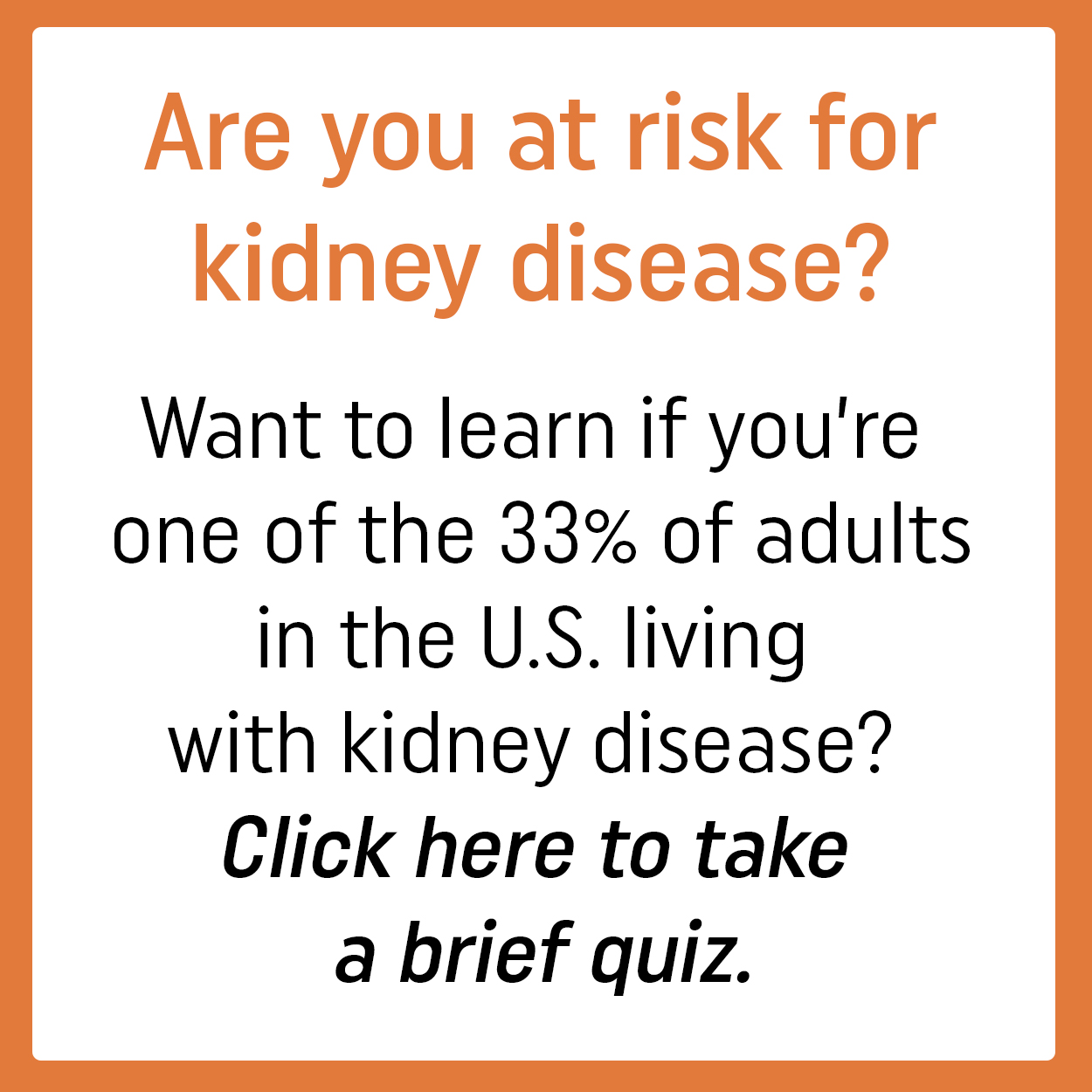Why You Should Pay Attention to the Health of Your Kidneys
According to the Centers for Disease Control and Prevention, roughly 37 million Americans are living with chronic kidney disease (CKD). As staggering as that number is, what’s even more alarming is the fact that 9 out of 10 adults with CKD aren’t even aware they have it.
But, in their defense, there is good reason.
In its earliest stages, CKD often has no symptoms. In fact, it’s commonly referred to as the ‘silent disease.’ As CKD progresses, your kidneys’ ability to filter waste, toxins, and excess fluids from your body declines. Untreated, it can lead to end-stage renal disease (ESRD), kidney failure, and contribute to other serious health conditions.
While anyone can develop chronic kidney disease, there are certain factors that increase your risk. These include:
Family history or background
- Someone in your family has kidney disease
- You are age 50 or older
- You are of African American, Hispanic or Native American descent
Health issues
Lifestyle
- Overuse of medications such as ibuprofen, naproxen or acetaminophen
- Chronic use of street drugs
Because CKD may be overlooked until symptoms appear at advanced stages, it is especially important to have ongoing discussions with your doctor about your risk factors and get tested. A simple blood tests during yearly physicals is all it takes to check your kidney function. If you do have CKD, your doctor can get you started on a treatment plan to help slow its progression and keep your kidneys working as long as possible.
Even if you don’t have any of the noted risk factors, you should be aware of some the earliest symptoms of CKD including:
- High blood pressure
- Swelling in your legs
- Urinary tract infections
As with so many chronic conditions, early detection is key. Early treatment can go a long way to extending the health of your kidneys and ensuring your quality of life.
Ruth Rudnick, RN,BSN,CNN is the director of Renal Dialysis Services at Southwestern Vermont Medical Center.
7694